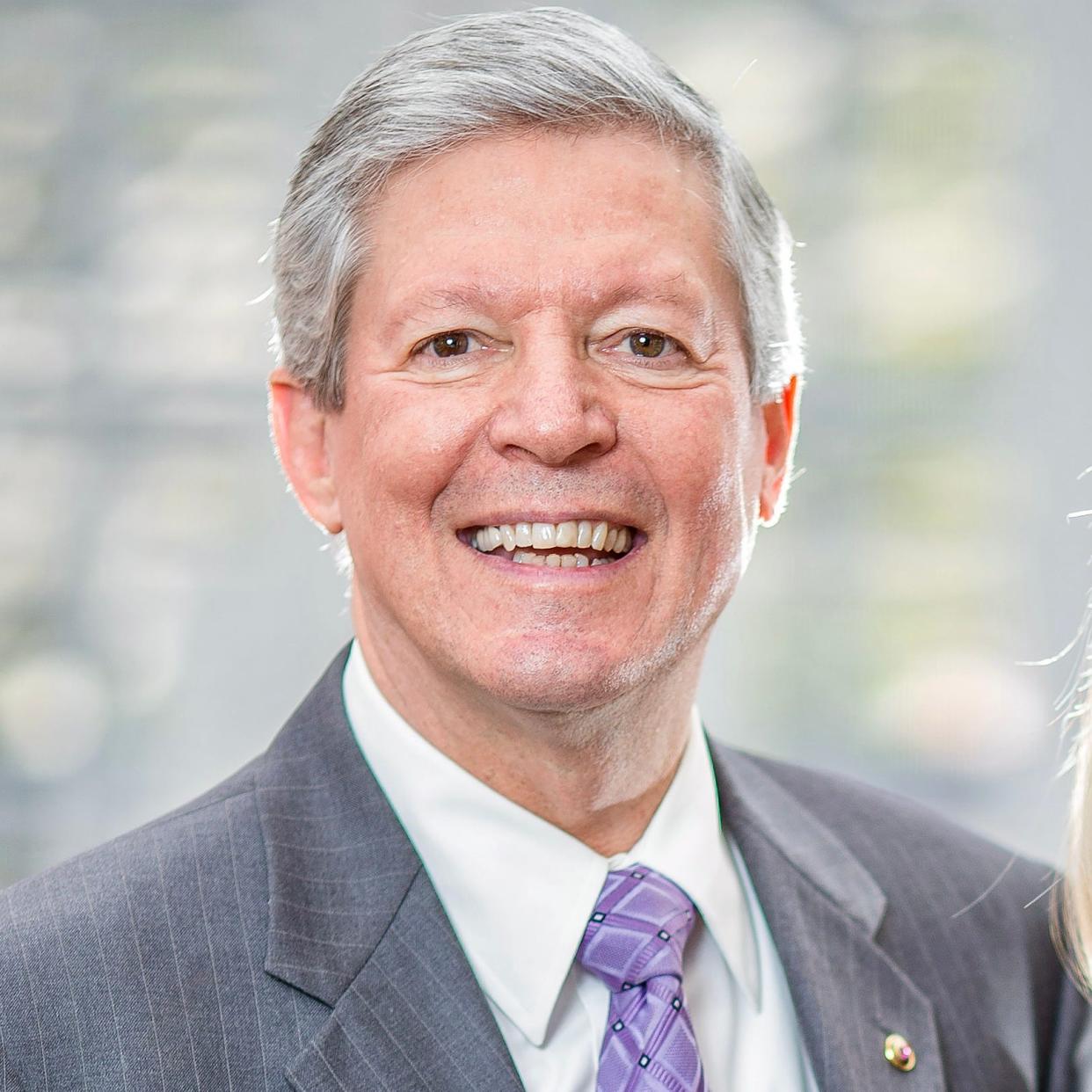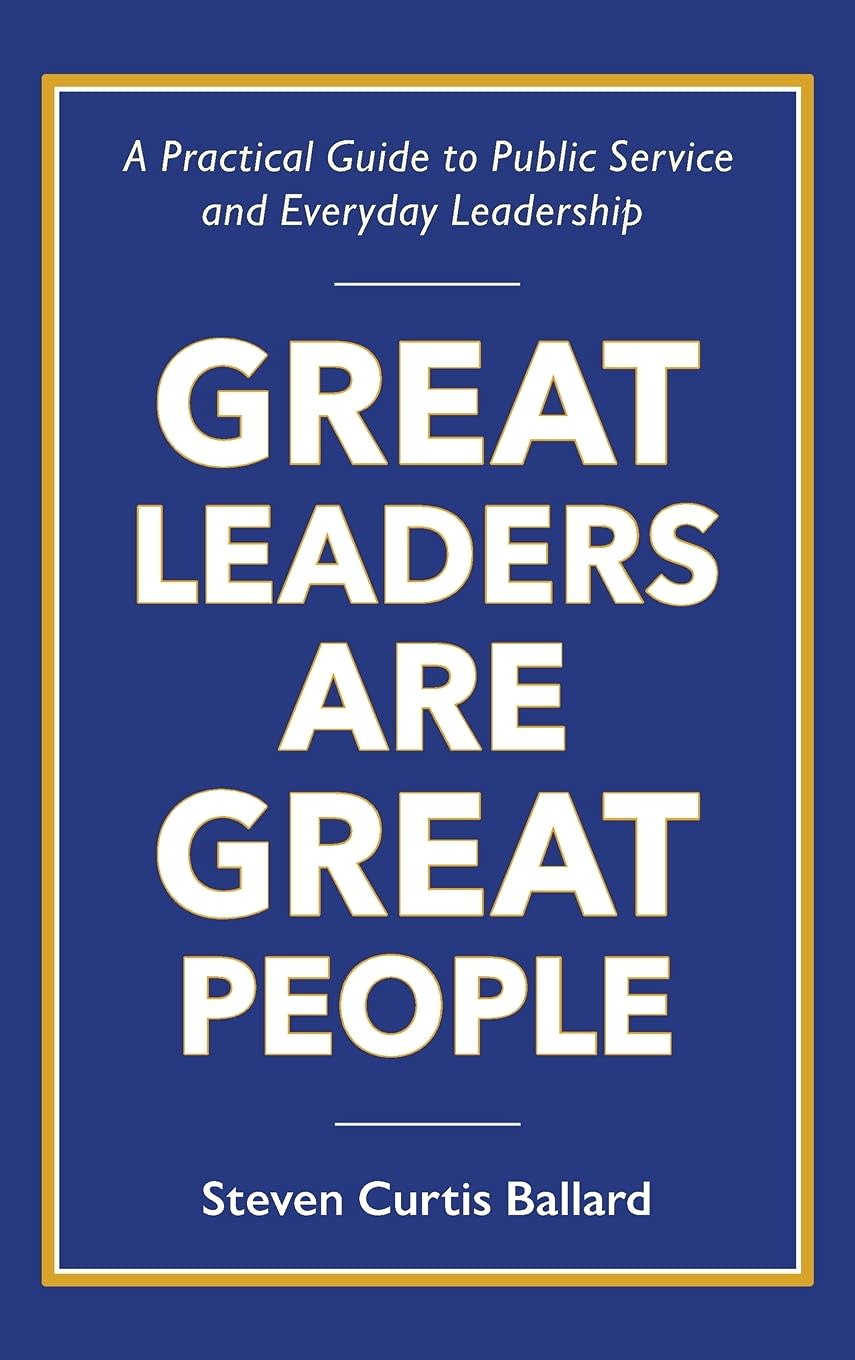Galesburg native, baseball star, turned college chancellor shares tips on leadership

Looking to be a better leader? A Galesburg native with an extensive and impressive career in higher education administration has some pointers via his new book "Great Leaders Are Great People."
Some Galesburg people may remember Steven "Steve" Ballard as a standout baseball player for the Galesburg Silver Streaks. The 1966 Galesburg High School graduate went on to become an all-conference shortstop at the University of Arizona and had a brief stint in the minor leagues with the St. Louis Cardinals.
But it's in the education field where Ballard made his most sustained career mark. Ballard achieved his doctorate from Ohio State University in 1976 and then went to the faculty of the University of Oklahoma for 13 years. He assumed administrative positions at Bowling Green State University in Ohio, the University of Missouri at Kansas City, and then East Carolina. He stepped down as chancellor after 12 years at ECU in 2017.
Ballard now lives with his wife Nancy in Washington, North Carolina. He shared his thoughts on his latest book and his career journey in a Q&A with The Register-Mail.
Former college chancellor emphases the idea of 'Everyday Leadership'
Q: Tell us about your book "Great Leaders Are Great People."

Ballard: The book was inspired by hundreds of inquiries over many years from current and aspiring leaders who wanted more practical advice about getting prepared for leadership roles and how to handle the inevitable land mines, roadblocks, and (especially) politics. Secondly, we need more attention to public service and how leadership is different in public institutions compared to the private sector.
Novel based on World War II diaries: Galesburg native Barry Swanson writes debut novel "Still Points"
So, this book is a practical guide to public service, based on my experience in public universities and a brief foray into local politics, based on my observations of truly great leaders (e.g.: Margaret Chase Smith) as well as people in positions of power who didn’t accomplish as much as they would have liked.
I emphasize the idea of “Everyday Leadership” which refers to the day-to-day challenges of making a positive difference in large organizations. This is in contrast to the typical approach to leadership which emphasizes the President/CEO or the management of the biggest crisis.
Q: Who would benefit from or enjoy reading your book?
Ballard: The audience is primarily anyone who wants to embark on a career (or an experience) in a public institution and can’t find practical guidance on how to get started. The book was tried out on numerous students and early-stage academic leaders; we received very positive feedback. I say often in the book that it is for “learners” (not self-described experts); I’ve found that the best leaders are the ones trying to learn from each experience.
Q: Speaking of great leaders: who are some of the great leaders who you have personally learned from? What made them good leaders?
Ballard: Chapter 5 describes lessons learned from 7 great leaders I’ve worked with, ranging from Margaret Chase Smith (Senator from Maine) to several successful leaders in higher education. A common characteristic of great leaders is they lead from strong values, especially courage and integrity. They also know when to stand up for a core value. A second common characteristic is “leadership demeanor”— the truly great leaders aren’t doing their job for personal rewards; they want to help others, they respect the idea of genuine service, and they surround themselves with good, honest people.
Q: What has the reaction to "Great Leaders Are Great People" been like since you released the book?
Ballard: The book came out in fall, 2021, so it is fairly new. Ten strong leaders reviewed the book before hand and had positive reactions. Many of their thoughts are listed in the first few pages. In addition, it has been battle tested on ECU students and people who enrolled in our leadership academies; it was their request for more “how to” information that resulted in many of the topics in the book.
Q: How can people get a copy of Great Leaders Are Great People?
Ballard: The book is available in paperback and hard bound from Amazon books and Barnes and Noble and can be found under my full name, Steven Curtis Ballard
Q: What other books have you published?
Ballard: I published several books in the 1980s along with members of our research team at the University of Oklahoma. They include assessments of the conflicts between energy development and natural resources, the innovation process and regional economic growth.
Q: Can you briefly fill us in on your accomplishments in college and minor league baseball?
Ballard: I didn’t have many significant accomplishments in the minor leagues, other than surviving for a while. But, I’m proud of my college days at Arizona. I was an all-conference shortstop in 1968, captain of our team in 1970 with a .384 batting average, and we played in Omaha in June, 1970 (NCAA final 8).
Lessons from baseball are applicable to success in higher education
Q: Do you find any correlation between your athletic success and your career success in education?
Ballard: Many lessons from baseball, going back to high school at GHS and Arizona are applicable to doing well in higher education. Strong teams are at the heart of success in public service, so I spend two chapters on what high performance teams are and how to build them.
'An All-American City': Peter Gorham's book shares childhood stories of growing up in Galesburg
Another simple but vital lesson from baseball is the importance of batting averages. Baseball players get used to failing about 7 times out of 10 at bats. Public leaders must develop a thick skin, get used to not achieving all their goals, and living to fight another day.
Q: What was it like growing up in Galesburg and how did it shape who you have become?
Ballard: Growing up in Galesburg was vital to any future success I had. My parents were a nurse and a teacher. We had to learn to work hard, depend on each other and cherish our friendships. As I say in the short biographical statement in the book, I am a proud graduate of Galesburg High School.
From Galesburg to the White House: How Galesburg native Mike Ebbing traveled the world with Richard Nixon
Q: Please give us a timeline of your career in education, and what you consider your top accomplishments?
Ballard: I received my doctorate from Ohio State University in 1976 and then went to the faculty of the University of Oklahoma for 13 years. We moved to Maine in 1989 and a few years later Terry MacTaggart, chancellor of the University of Maine System, convinced me to seek higher, administrative positions. For unknown reasons I followed his advice and that took me to administrative positions at Bowling Green State University (Ohio), the University of Missouri at Kansas City, and then East Carolina. I stepped down as Chancellor after 12 years at ECU (summer 2017).
At ECU, I am most proud of building a superb leadership team that gained the respect of our governing boards and the president of the University of North Carolina system. We grew the university to nearly 30,000 students. This growth included a new Honors College that I now teach in, a dental school and school of engineering, and a new heart institute.
Before ECU, my best achievement was starting the Margaret Chase Smith center for public policy at Maine and gaining the support of Senator Smith.
Q: Tell us about what you are doing now.
Ballard: During my inaugural speech at East Carolina I said that ECU should be “the leadership university.” Since stepping down from the chancellorship, I have taught leadership courses and overseen several of our leadership programs and continued to support our leadership academies. The goal has been to make leadership training an important part of a good education.
My wife Nancy and I live down the road a little bit in Washington, North Carolina, with our dog Shea. Nancy is retired from a long career in health care. Our daughter and granddaughter live in San Francisco, California.
This article originally appeared on Galesburg Register-Mail: 'Great Leaders Are Great People': Galesburg native shares tips in book

